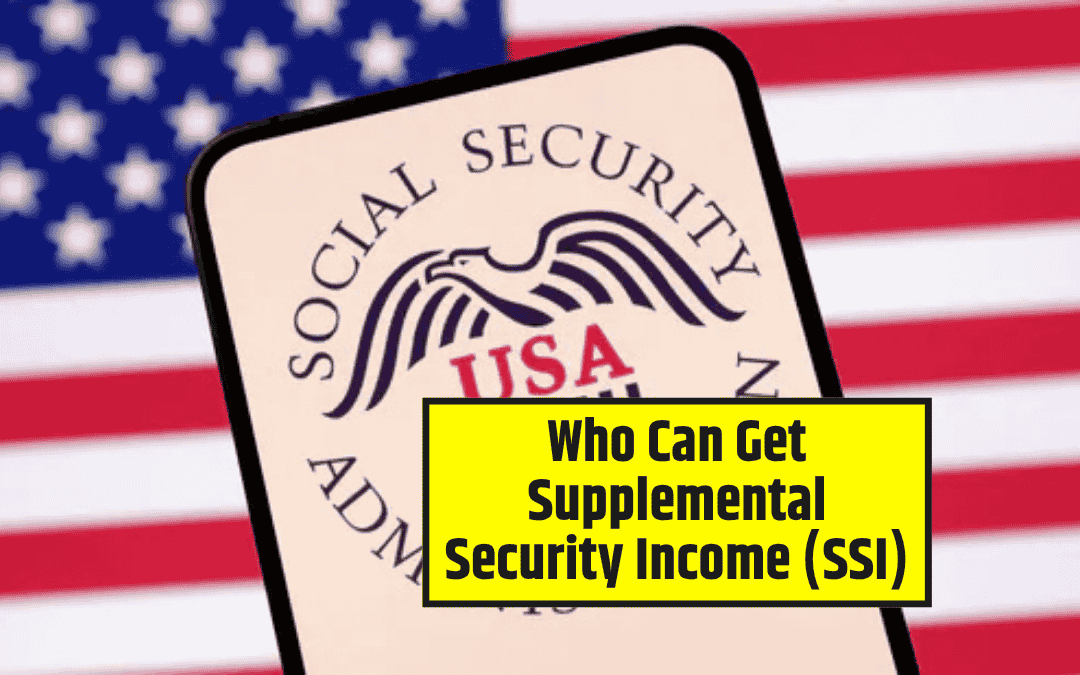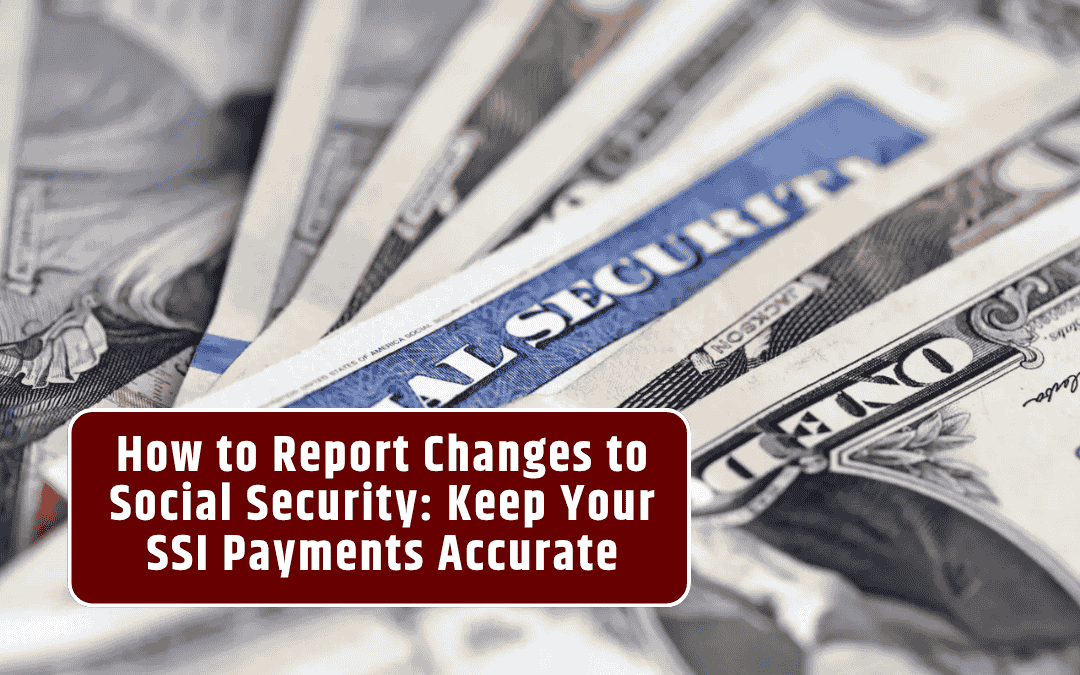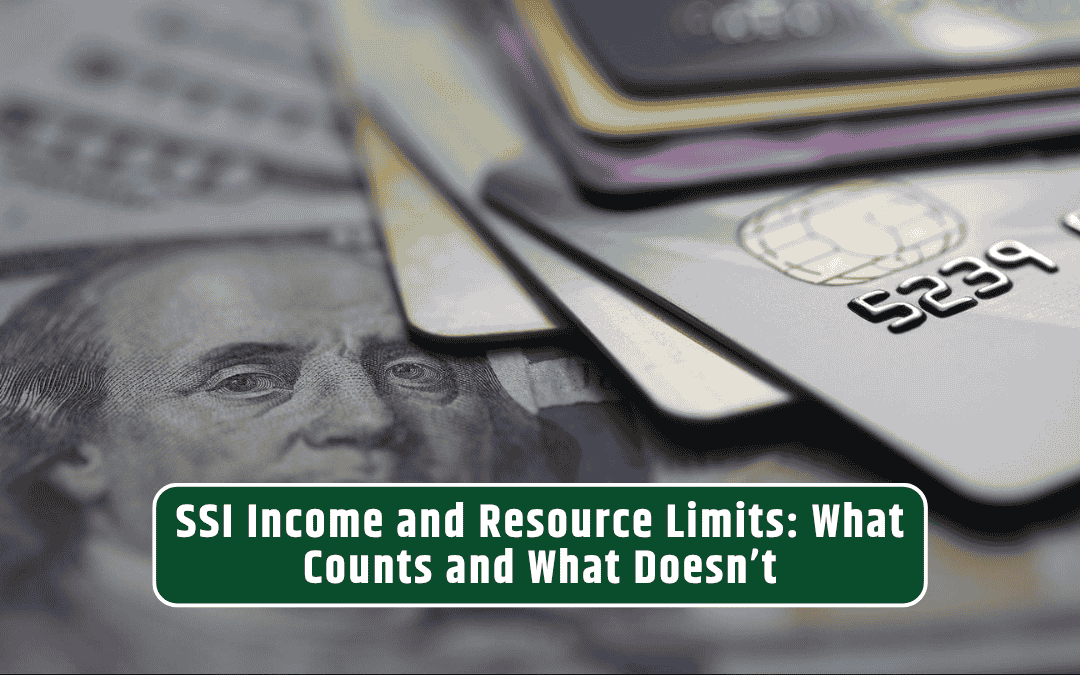Supplemental Security Income (SSI) provides monthly payments to adults and children who have limited income and resources and meet specific medical or age requirements. This program helps people cover basic living costs such as food, clothing, and housing when they don’t qualify for benefits based on their work history.
1. You Have Little or No Income
SSI is generally for people with limited or no income from work or other sources. In 2025, individuals who earn less than $2,019 per month before taxes may qualify.
The income limit is higher for couples and when parents apply on behalf of a child. Besides wages, Social Security also looks at other income sources like disability benefits, unemployment payments, and pensions when determining eligibility.
If you’d like to see how your income might affect eligibility, you can use the SSI Income Calculator on SSA.gov for personalized guidance.
2. You Have Limited Resources
SSI also considers your resources—the things you own that could be converted to cash, such as vehicles, savings, or property.
To qualify, your resources generally cannot exceed:
- $2,000 for individuals
- $3,000 for couples
If you’re a parent applying for a child, the resource limit increases by $2,000. Certain items, like your primary home or one vehicle used for transportation, do not count toward these limits.
You can find a full list of excluded resources on the Social Security Administration’s website.
3. You Have a Disability or Are Age 65 or Older
If you’re age 64 or younger, you must have a disability that meets Social Security’s medical requirements. Your condition must:
- Prevent you from working for at least one year,
- Be expected to result in death, or
- Severely limit daily activities (for children with disabilities).
To qualify under the disability rules, your monthly work earnings must also be below $1,550 at the time you apply.
If you’re age 65 or older, you don’t need to have a disability to receive SSI—your eligibility will be based on your income and resources instead.
Additional Rules for Noncitizens
Certain noncitizens may also qualify for SSI if they meet specific immigration and residency requirements in addition to the financial and disability criteria. Eligibility depends on your lawful status, how long you’ve lived in the U.S., and whether you’ve worked or served in the military.
For more information, visit the Noncitizen Eligibility for SSI page on SSA.gov.
Next Steps
If you think you or someone you care for might qualify for SSI, you can:
- Use the online SSI screening tool at SSA.gov/SSI
- Apply online or at your local Social Security office
- Or call 1-800-772-1213 (TTY 1-800-325-0778) for assistance.
Applying early ensures you receive the help you’re eligible for as soon as possible.
FAQs
Who can qualify for Supplemental Security Income (SSI)?
Adults and children may qualify for SSI if they have little or no income, limited resources, and meet one of the following: they have a disability, are blind, or are age 65 or older. Eligibility is based on financial need rather than work history.
What are the income limits for SSI eligibility?
In 2025, individuals generally qualify if they earn less than $2,019 per month before taxes. The limit is higher for couples and when parents apply for children. Social Security also considers other income sources such as disability benefits, unemployment, and pensions.
What counts as a resource for SSI?
Resources include things you own, such as vehicles, cash, and money in bank accounts. To qualify, your resources must not exceed $2,000 for individuals or $3,000 for couples. Certain items, like your primary home or one vehicle, do not count toward these limits.
What are the disability and age requirements for SSI?
If you are under 65, you must have a disability that prevents you from working for at least one year, is expected to result in death, or severely limits daily activities for children. If you are 65 or older, you may qualify without a disability if you meet income and resource requirements.
Can noncitizens qualify for SSI?
Some noncitizens can receive SSI if they meet specific immigration and residency requirements. Eligibility depends on lawful status, length of residence in the U.S., and in some cases, work or military service. Visit SSA.gov for full details on noncitizen eligibility.









